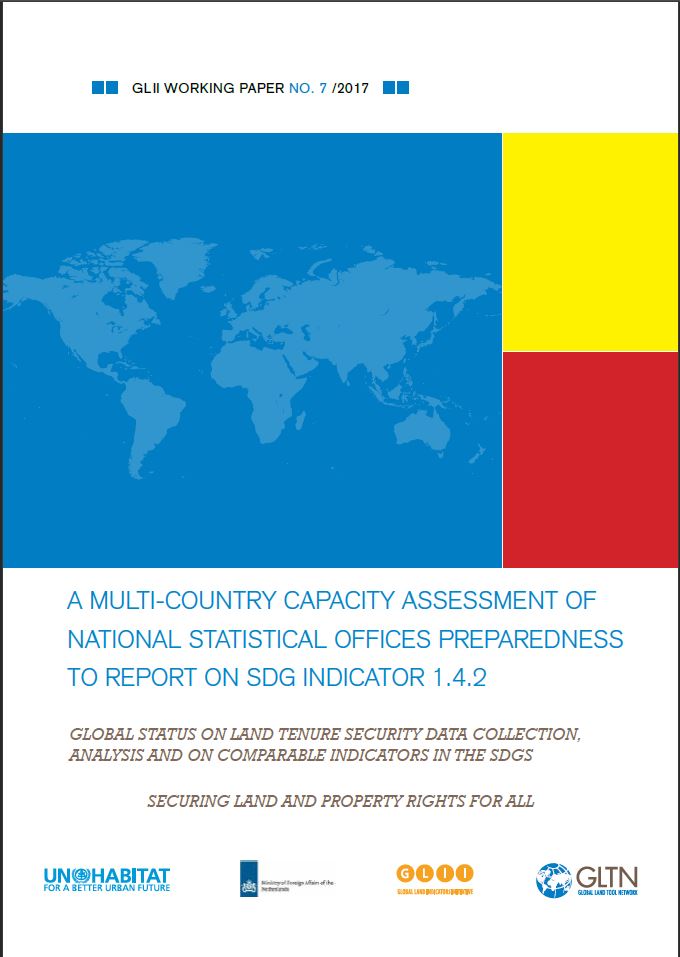Location
UN-Habitat is the United Nations programme working towards a better urban future.
Its mission is to promote socially and environmentally sustainable human settlements development and the achievement of adequate shelter for all. Cities are facing unprecedented demographic, environmental, economic, social and spatial challenges. There has been a phenomenal shift towards urbanization, with 6 out of every 10 people in the world expected to reside in urban areas by 2030. Over 90 per cent of this growth will take place in Africa, Asia, Latin America, and the Caribbean. In the absence of effective urban planning, the consequences of this rapid urbanization will be dramatic. In many places around the world, the effects can already be felt: lack of proper housing and growth of slums, inadequate and out-dated infrastructure – be it roads, public transport, water, sanitation, or electricity – escalating poverty and unemployment, safety and crime problems, pollution and health issues, as well as poorly managed natural or man-made disasters and other catastrophes due to the effects of climate change. Mindsets, policies, and approaches towards urbanization need to change in order for the growth of cities and urban areas to be turned into opportunities that will leave nobody behind. UN-Habitat, the United Nations programme for human settlements, is at the helm of that change, assuming a natural leadership and catalytic role in urban matters. Mandated by the UN General Assembly in 1978 to address the issues of urban growth, it is a knowledgeable institution on urban development processes, and understands the aspirations of cities and their residents. For close to forty years, UN-Habitat has been working in human settlements throughout the world, focusing on building a brighter future for villages, towns, and cities of all sizes. Because of these four decades of extensive experience, from the highest levels of policy to a range of specific technical issues, UN-Habitat has gained a unique and a universally acknowledged expertise in all things urban. This has placed UN-Habitat in the best position to provide answers and achievable solutions to the current challenges faced by our cities. UN-Habitat is capitalizing on its experience and position to work with partners in order to formulate the urban vision of tomorrow. It works to ensure that cities become inclusive and affordable drivers of economic growth and social development.
Members:
Resources
Displaying 46 - 50 of 224A Multi-Country Capacity Assessment of National Statistical Offices Preparedness to Report on SDG Indicator 1.4.2
This report presents the results of the multi-country assessment carried out in 17 countries across the world. The findings of this assessment is expected to directly inform the work of the co-custodian agencies for land Indicator 1.4.2 (UN-Habitat and World Bank) in formulating a coherent capacity development strategy for NSOs at country level, and strengthen their collaboration with land agencies for enhanced data infrastructure needed to regularly report on this indicator.
Land Governance. A Review and Analysis of Key International Frameworks
Publication features the key provisions on land governance in recent relevant international frameworks. Presents where new issues or themes appeared, issues that have gained additional support and those that have received less attention. Also highlights the particularities, strengths and potential gaps of the individual frameworks, as well as their similarities, complementarities and differences. Emphasizes the critical role of land governance in the realization of human rights, enjoyment of secure land rights and in the overall achievement of sustainable development objectives.
Land Governance. A Review and Analysis of Key International Frameworks
Publication features the key provisions on land governance in recent relevant international frameworks. Presents where new issues or themes appeared, issues that have gained additional support and those that have received less attention. Also highlights the particularities, strengths and potential gaps of the individual frameworks, as well as their similarities, complementarities and differences. Emphasizes the critical role of land governance in the realization of human rights, enjoyment of secure land rights and in the overall achievement of sustainable development objectives.
Land Governance. A Review and Analysis of Key International Frameworks
Publication features the key provisions on land governance in recent relevant international frameworks. Presents where new issues or themes appeared, issues that have gained additional support and those that have received less attention. Also highlights the particularities, strengths and potential gaps of the individual frameworks, as well as their similarities, complementarities and differences. Emphasizes the critical role of land governance in the realization of human rights, enjoyment of secure land rights and in the overall achievement of sustainable development objectives.



